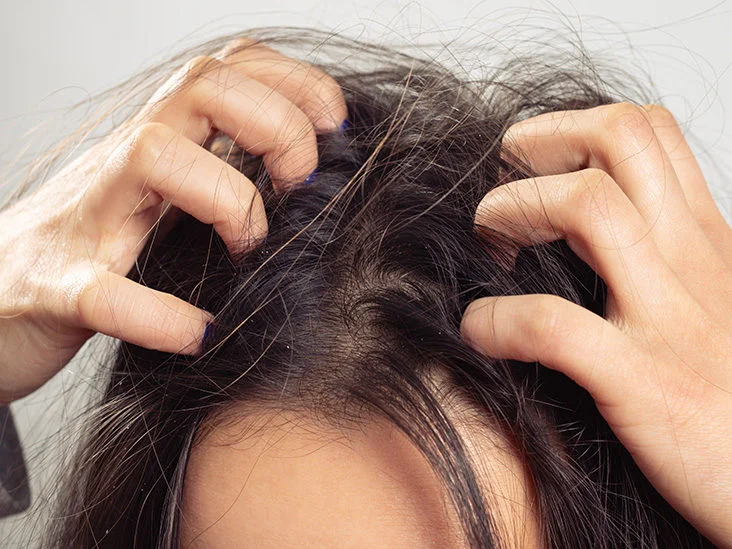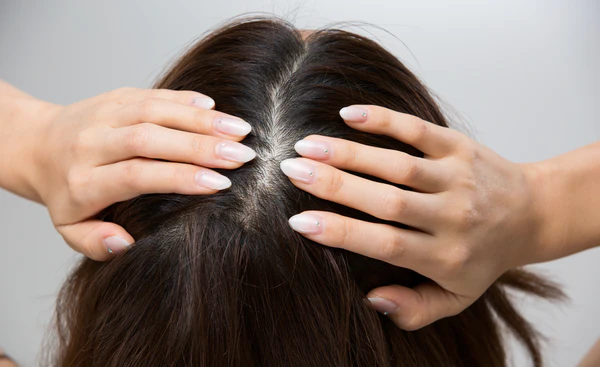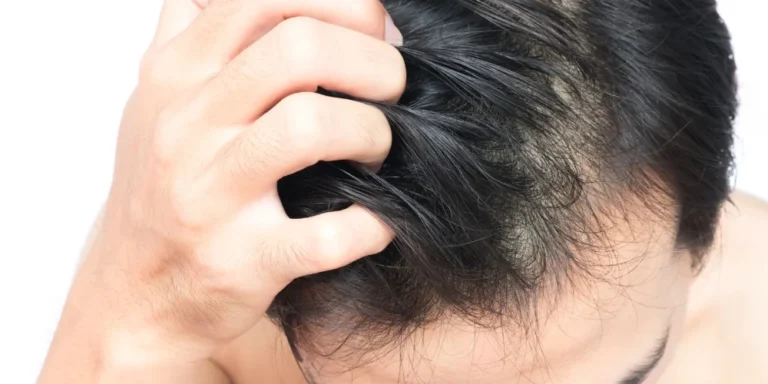If your head itches after putting oil on your hair, a few things might be causing it. Some oils, especially ones from nuts, can make your skin react. Using too much oil or not washing your hair enough can also make it itchy. Cheap or dirty oils could have stuff in them that bothers your skin. If you use strong oils without mixing them with a different one, it can make your head itch too. If your scalp already has issues like dandruff, some oils might make it worse.
To fix it, try using oils that are less likely to cause problems, wash your hair better, and test for allergies. If the itching doesn’t stop, talk to a skin doctor for help. Remember, everyone’s skin is different, so you might need to try different oils to find the best one for you.
What Causes Hair Itching After Oil Application?

If you experience persistent itching after oil application, it’s advisable to identify the cause. Consider switching to a different oil, make sure to wash your hair thoroughly after oiling, and maintain good scalp hygiene.
Low-Quality or Allergic Reaction to Oil
Some hair oils may contain ingredients that your scalp is sensitive to, leading to irritation and itching. Low-quality oils or those with additives and chemicals can also cause irritation.
Residue Buildup
Inadequate rinsing or washing after oil application can leave a residue on the scalp, leading to itchiness.
Infrequent Washing
If you don’t wash your hair regularly, especially after oiling, it can result in a buildup of oil and dead skin cells, leading to itching.
Scalp Conditions
Pre-existing scalp conditions like dandruff, psoriasis, or eczema can cause itching, and applying oil may exacerbate the symptoms.
Fungal Infections
Fungal infections, such as ringworm or tinea capitis, can cause itching. Oils can sometimes create a favorable environment for these fungi to thrive.
Heat and Sweating
Heat and sweating, especially if you use a hot towel or wrap your head after oiling, can contribute to irritation.
Poor Oil Penetration
Applying too much oil or not massaging it properly into the scalp may result in poor penetration, leaving a layer on the surface that can cause discomfort.
Allergies or Sensitivities
Some individuals may be allergic or sensitive to certain natural oils, herbs, or fragrances used in hair oils.
Product Interaction
Using multiple hair care products simultaneously may lead to a combination that irritates the scalp.
Dirty Combs and Brushes
Using dirty or contaminated combs and brushes can introduce bacteria to the scalp, causing itching.
How to Address Hair Itching Issues? Switching Oils, Dilution, and Washing
Addressing hair itching issues involves a combination of strategies, including switching oils, proper dilution, and ensuring thorough washing. Here are some steps you can take:
Switching Oils
If you suspect that the itching is caused by a specific oil or ingredient, try switching to a different oil or a product with fewer additives.
Opt for natural oils like coconut, jojoba, olive, or almond oil, which are generally well-tolerated by most people.
Dilution
If you find that pure oil is too heavy for your scalp or causing irritation, consider diluting it with a carrier oil or water.
Mix a small amount of essential oil with a larger amount of a carrier oil to reduce the concentration of active ingredients.
Thorough Washing
Ensure you wash your hair thoroughly after applying oil to prevent residue buildup.
Use a mild, sulfate-free shampoo to clean your scalp without stripping it of natural oils. Consider using warm water to open the hair cuticles, making it easier to remove the oil.
Frequency of Washing
If you have a tendency to develop an itchy scalp, try not to leave the oil on for an extended period. Wash your hair regularly to prevent buildup.
Scalp Massage
When applying oil, massage your scalp gently to improve blood circulation and promote better absorption of the oil.
Check for Scalp Conditions
If itching persists, consult a dermatologist to check for underlying scalp conditions like dandruff, eczema, or fungal infections.
Avoid Heat and Sweat
Avoid using hot towels or wraps immediately after oiling, as they can increase heat and sweating, potentially exacerbating itching.
Maintain Good Scalp Hygiene
Keep your combs and brushes clean to prevent bacterial growth.
Avoid sharing personal hair care items to minimize the risk of infections.
Allergy Testing
If you suspect an allergy, perform a patch test before applying any new oil or hair care product. Apply a small amount to a small area of skin and monitor for any adverse reactions.
How to Resolve Persistent Hair Itching?

If you’re dealing with persistent hair itching despite trying various home remedies, it’s crucial to take more targeted steps to address the issue. The first step should be to consult with a dermatologist who can examine your scalp, identify any underlying conditions, and recommend appropriate treatment.
Depending on the diagnosis, your dermatologist may suggest medicated shampoos designed to treat common scalp conditions like dandruff, seborrheic dermatitis, or psoriasis. In some cases, prescription medications or antifungal treatments may be necessary to alleviate itching and reduce inflammation. It’s also important to assess your hair care products, opting for gentle, fragrance-free options.
Lifestyle factors such as diet, stress levels, and sleep patterns can impact scalp health, so considering positive changes in these areas may contribute to overall improvement. Additionally, follow the dermatologist’s recommendations diligently, as resolving persistent itching may require time and consistent care.
FAQ’s
How do you apply oil to an itchy scalp?
Apply the oil directly to the scalp, parting hair sections. Massage gently using circular motions for even distribution.
How do you fix an itchy scalp?
Identify the cause; switch to a gentle shampoo, consider anti-dandruff products, and maintain scalp hygiene.
Why did I stopped oiling my hair?
Some may stop due to oiliness, product buildup, or sensitivity. Experiment with alternatives that suit your hair needs.
What is the proper way to oil your scalp?
Section hair, apply oil, and massage in circular motions. Leave it for some hours or overnight before washing.
Is it good to rub oil on your scalp?
Yes, but in moderation. Massage helps improve blood circulation and oil distribution, promoting scalp health.
Final Words
If your head itches after putting oil on your hair, there are a few things to think about. Some oils might not be good for your skin, and you could be allergic to them. It’s essential to use oils that are safe for you. Also, if you use too much oil or don’t wash your hair enough, it can cause problems like itching. Choose good-quality oils and be careful with strong-smelling ones, like essential oils.
If your head keeps itching, it’s a good idea to see a skin doctor. They can help figure out why it’s happening and what you can do about it. Remember, finding the right oil for your hair might take some trying, but it’s worth it for a happy and itch-free scalp.

